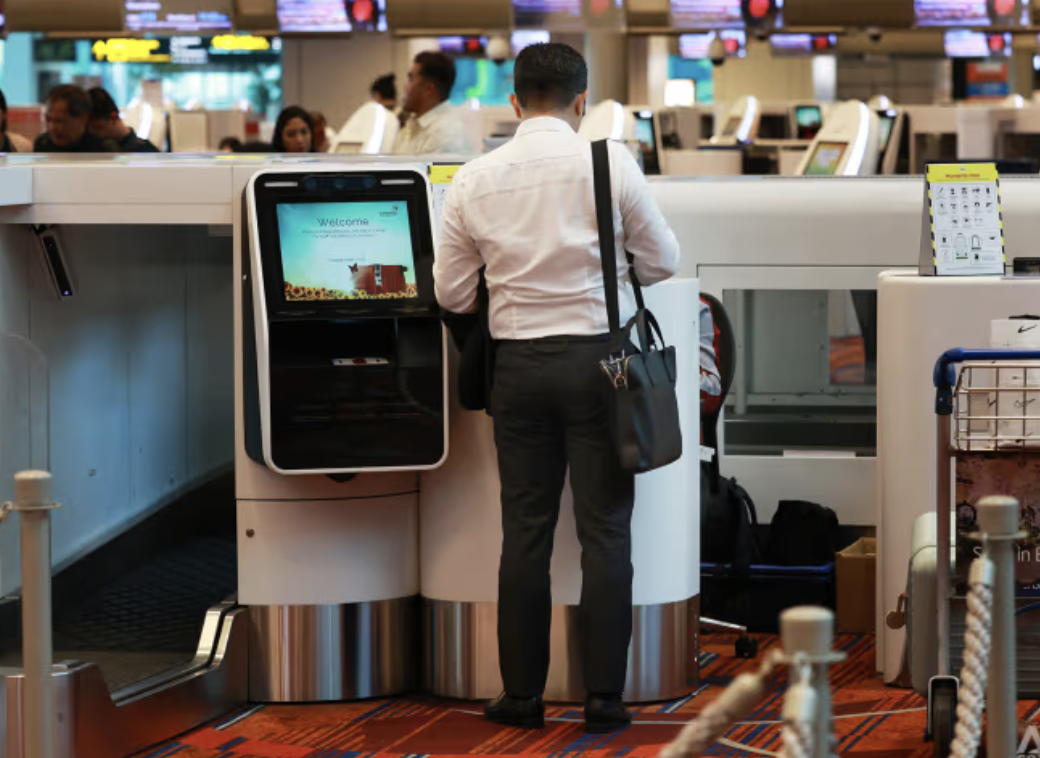29-year-old Rayson Koh lives in Bangkok, Thailand, but flies back to Singapore several times a week for company meetings.
Koh had always dreamed of living abroad. In early 2024, he moved to Thailand. As a financial advisor with a flexible schedule, he chooses to spend most of his time in Bangkok. He handles the majority of his work, such as processing insurance claims for clients, online. He only returns to Singapore for meetings, training, or to meet new clients.
Koh exemplifies the super commuter lifestyle: living in one city or country while working in another. This is distinct from remote work or the digital nomad lifestyle.
A 2024 Stanford University study revealed that the number of super commuters in 10 major US cities increased by more than 30% after the pandemic. These individuals aren't necessarily wealthy; many choose this lifestyle to save money or capitalize on higher salaries in countries like Singapore while enjoying a lower cost of living elsewhere.
Koh pays nearly 800 USD per month for his Bangkok apartment, about one-sixth the price of comparable accommodation in Singapore. Thanks to lower rent and living expenses, he can comfortably afford frequent flights between Bangkok and Singapore while still saving around 20% compared to living in his home country.
 |
Passengers checking in at Changi Airport, Singapore. Photo: CNA |
Passengers checking in at Changi Airport, Singapore. Photo: CNA
Samantha Ng, director of Abundanz Consulting, a Singaporean career consulting firm, notes that people choose the super commuter lifestyle for various reasons. "They might be at a financial stage where they can prioritize other things like a slower pace of life or exploring a new country," she said. At the same time, some are compelled to adopt this lifestyle due to Singapore's high cost of living.
Economist Song Seng Wun believes improved transportation infrastructure has fueled the super commuting trend. He suggests that living abroad also allows entrepreneurs to build assets in Southeast Asia.
37-year-old Sam Sng, a marketing company director, moved to Guangxi, China, after noticing market saturation in Singapore. He explains that the Chinese market offers greater scale, larger project budgets, and higher e-commerce order volumes, leading to increased profits compared to Singapore.
In addition to digital marketing, he owns two other companies specializing in tax and consulting, serving clients in both Singapore and China. He spends two weeks each month with his wife and daughter in Singapore and two weeks in China.
Brandon Yeo, 29, owns a fashion studio and currently lives near Bangkok. He finds that the Thai environment and culture benefit both his work and personal life.
Yeo previously felt constrained in Singapore, which he likens to a "small room" that limited his thinking. He appreciates the open-mindedness, lack of judgment, and greater risk tolerance he's encountered in Thailand. Moreover, Thailand's expansive spaces and natural landscapes facilitate weekend getaways.
For Yeo, the change of scenery significantly impacts his creativity, helping him overcome work-related obstacles.
The lower cost of living is also crucial. A high-end meal in the Bangkok suburbs costs half the average price in Singaporean food courts, with many dishes priced under 1.5 USD.
He believes that starting a family in Singapore is prohibitively expensive. In contrast, he has married, has two children, and maintains a stable life in Thailand.
Yeo witnessed his mother missing significant milestones due to work pressures. This experience led him and his wife to prioritize spending time with their children. Thanks to the lower cost of living and his wife not needing to work, this goal is achievable.
He estimates that a family of four in Singapore needs at least 2,150 USD per month for basic living expenses, excluding education, healthcare, insurance, and entertainment. His family lives comfortably and thrives in Thailand for the same amount.
 |
Brandon Yeo with his wife and children in Bangkok, Thailand. Photo: Courtesy of the subject |
Brandon Yeo with his wife and children in Bangkok, Thailand. Photo: Courtesy of the subject
However, this lifestyle requires enduring commutes of three to nine hours, reducing work time.
Super commuters must also anticipate risks like traffic jams, flight or train delays, and inclement weather, which can lead to stress, anxiety, sleep deprivation, and health problems.
44-year-old Joel Shen, a corporate lawyer living in Jakarta, Indonesia, has experienced this firsthand. He frequently travels between Singapore and other parts of Indonesia for work.
At one point, he took 11 flights in six days, leading to exhaustion. The constant travel left him disoriented, unsure of his location upon waking. He once got lost in a hotel corridor, entering the wrong room because he remembered his previous room number. He even tripped due to forgetting he was in a different place.
The most severe incident occurred in 9/2024 after landing at Changi Airport following a conference in Bangkok. He experienced dizziness, cold sweats, and paleness, leading colleagues to suspect a heart attack. While he didn't require emergency treatment, doctors diagnosed a panic attack.
Shen admits this lifestyle makes maintaining good health challenging. Frequent flying disrupts his sleep schedule and eating habits, arriving when people are asleep and leaving before they wake up. Consequently, he misses family events like birthdays and anniversaries.
Professor Liu at the Singapore Management University believes super commuting positively contributes to the local economies of the commuters' residences. By earning income in stronger currencies, they increase purchasing power and support their families' livelihoods in their local communities.
However, individuals considering this lifestyle should carefully weigh the pros and cons. They should define clear goals, set a timeframe, and prepare mentally, avoiding impulsive decisions that could lead to undesirable consequences.
"The feeling of escaping the office environment can be appealing at first, but without preparation, people can feel lost and disoriented," he said.
Frequent travel should also be considered in relation to career goals, ensuring each step aligns with long-term objectives.
Ngoc Ngan (From CNA)












